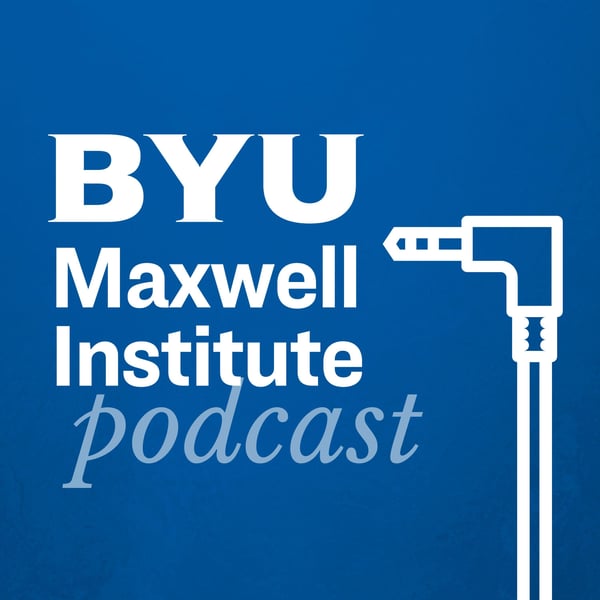Abide: Genesis 3–4 and Moses 4–5
Maxwell Institute Podcast
Maxwell Institute Podcast
4.8 • 789 Ratings
🗓️ 13 January 2022
⏱️ 36 minutes
🧾️ Download transcript
Summary
Transcript
Click on a timestamp to play from that location
| 0:00.0 | Adam fell that men might be, and men are that they might have joy. |
| 0:07.0 | Lehigh's declaration in 2 Nephi chapter 2 is transformative in Latter-day Saint theology, |
| 0:12.0 | marking an event portrayed often in negative terms throughout Abrahamic faiths into something fulfilling and meaningful. |
| 0:17.0 | That isn't the only way that Latter-day Saints understand the fall differently than Jews, Christians, or Muslims. In today's episode of Abide, a Maxwell Institute podcast, |
| 0:25.6 | we explore the scriptural narratives of Eden, post-Eden life, agency, and much more. |
| 0:30.6 | My name is Joseph Stewart. I'm the public communication specialist of the Neil A. Maxwell |
| 0:34.2 | Institute for Religious Scholarship at Brigham Young University. And Christian Hill is a research fellow at the Maxwell Institute. Each week, we'll be discussing |
| 0:41.8 | the block of reading from the Church of Jesus Christ of Latter-day Saints, Come Follow Me curriculum. |
| 0:46.1 | We aren't here to present a lesson, but rather to hit on a few key themes from the scripture block |
| 0:49.8 | that we believe will help fulfill the Maxwell Institute's mission to inspire and fortify Latter-day Saints in their testimonies of the restored gospel of Jesus Christ and engage the world |
| 0:57.7 | of religious ideas. We encourage you to follow us on social media, on Twitter, Instagram, |
| 1:02.8 | TikTok, or Facebook at the handle at BYU, Maxwell. Christian, what's going on in Genesis chapter 3 and 4 and Moses chapter 4 and 5? |
| 1:14.6 | Genesis 3 opens in the garden that the Lord God planted in Eden. This garden is the site of |
| 1:20.9 | protological events and eschatological hopes. That's to say, events that relate to the origins of |
| 1:27.3 | all humanity, protology, |
| 1:29.1 | and the hope that Christians have for the future, eschatology. This all starts to make sense |
| 1:34.6 | when we learn that the Hebrew GAN, garden, was translated into the Septuagint as Paradisos, |
| 1:41.3 | paradise, which is an old Persian loan word, meaning a walled garden. So, when we read in |
| 1:47.0 | Revelation 2.7, that, to him that overcometh will I give to eat of the tree of life, which is in |
| 1:52.8 | the midst of the paradise of God, we find ourselves in that one eternal round that begins and |
| 1:58.3 | ends with the garden that God planted in Eden. The scene is bucolic, |
| 2:03.7 | the setting familial and pastoral. Adam and Eve are surrounded by fruit trees, evidently including |
... |
Please login to see the full transcript.
Disclaimer: The podcast and artwork embedded on this page are from Maxwell Institute Podcast, and are the property of its owner and not affiliated with or endorsed by Tapesearch.
Generated transcripts are the property of Maxwell Institute Podcast and are distributed freely under the Fair Use doctrine. Transcripts generated by Tapesearch are not guaranteed to be accurate.
Copyright © Tapesearch 2025.

